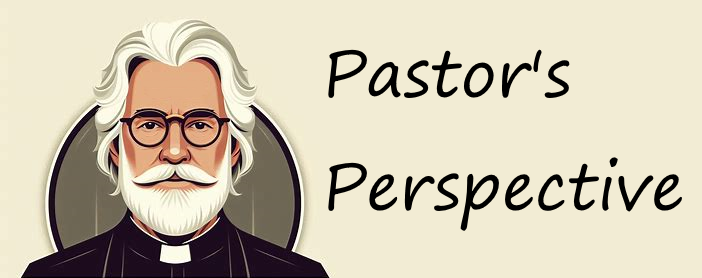Pastor Patrick’s Perspective, Summer 2025
“For the word of God is living and active, sharper than any two-edged sword, piercing to the division of soul and of spirit, of joints and of marrow, and discerning the thoughts and intentions of the heart. And no creature is hidden from his sight, but all are naked and exposed to the eyes of him to whom we must give account.” Hebrews 4:12–13
Recently I have been spending time reading and thinking about how we understand, with a particular emphasis on how we understand words.
Normally, when we read something, we think we are the ones doing the action. We bring our background, questions, and experiences to the text. We do this all the time when we read for information. Where was Jesus born? Luke 2 says Bethlehem. At the heart of reading this way is being in charge. I read to master the text: to break it down, to analyze it, to get its meaning, and move on. As a reader I’m in control.
But God’s Word is not passive. It is not a quiet book waiting for our judgment. It is living and active. It speaks. It cuts. It lays bare the soul. It does not ask for permission. It discerns the thoughts and intentions of the heart. In other words, it interprets us.
This happens when the text starts to question you. It reads you, it interprets you. It exposes your assumptions. It calls out your priorities. It shows you things about yourself that you didn’t know or didn’t want to admit. It challenges you. It doesn’t just sit there waiting for you to figure it out — it presses in and does work on you.
Consider the parable of the Pharisee and the tax collector in Luke 18:9–14. At first, the story seems simple. Two men go to the temple to pray. One is religious and respectable—the Pharisee. The other is known to be a sinner—the tax collector. The Pharisee thanks God that he is not like other people. The tax collector won’t even look up, but beats his chest and says, “God, be merciful to me, a sinner.”
Now here’s where the parable interprets us. Jesus tells this story, Luke says, “to some who trusted in themselves that they were righteous and treated others with contempt.” The moment I say, “Thank God I’m not like that Pharisee,” the parable catches me. Bamm! It reads my pride. It exposes how quickly we take Jesus’ words and turn them into another way to justify ourselves.
In that moment, the text is not something I’m explaining—it’s something that is explaining me. It is pronouncing a verdict.
That’s unsettling. We don’t like being exposed. We prefer to explain ourselves, to stay in control. But the Word does not let us stay hidden behind our excuses or performances. It tells the truth about us. It interprets us as sinners—people who trust in ourselves, who compare ourselves to others, who turn even repentance into pride.
But the Word that exposes is also the Word that gives Christ. Colossians 1:13–14 declares that God “has delivered us from the domain of darkness and transferred us to the kingdom of his beloved Son, in whom we have redemption, the forgiveness of sins.” The kingdom of God is your declares the Lord.
So in short: the Bible interprets us because it is not a book we master. It is a Word that masters us — a Word that kills the sinner and raises up a new creature in Christ.
Lord, your Word is living and active. Do not let me twist it to suit myself. Speak through it. Search me. Expose my sin. And above all, give me Jesus, who covers my shame and brings me to you. Amen.
© Patrick K Welton
